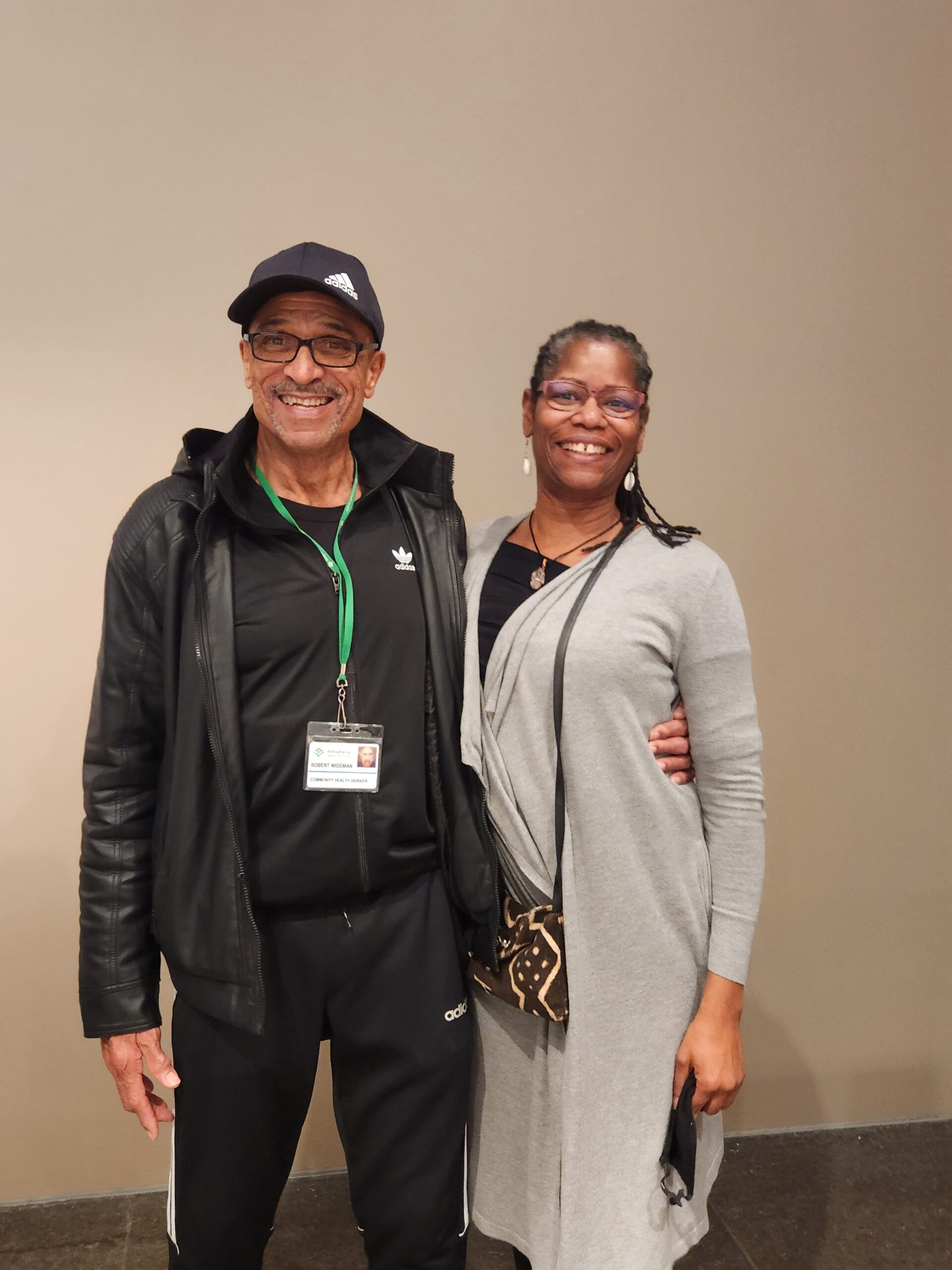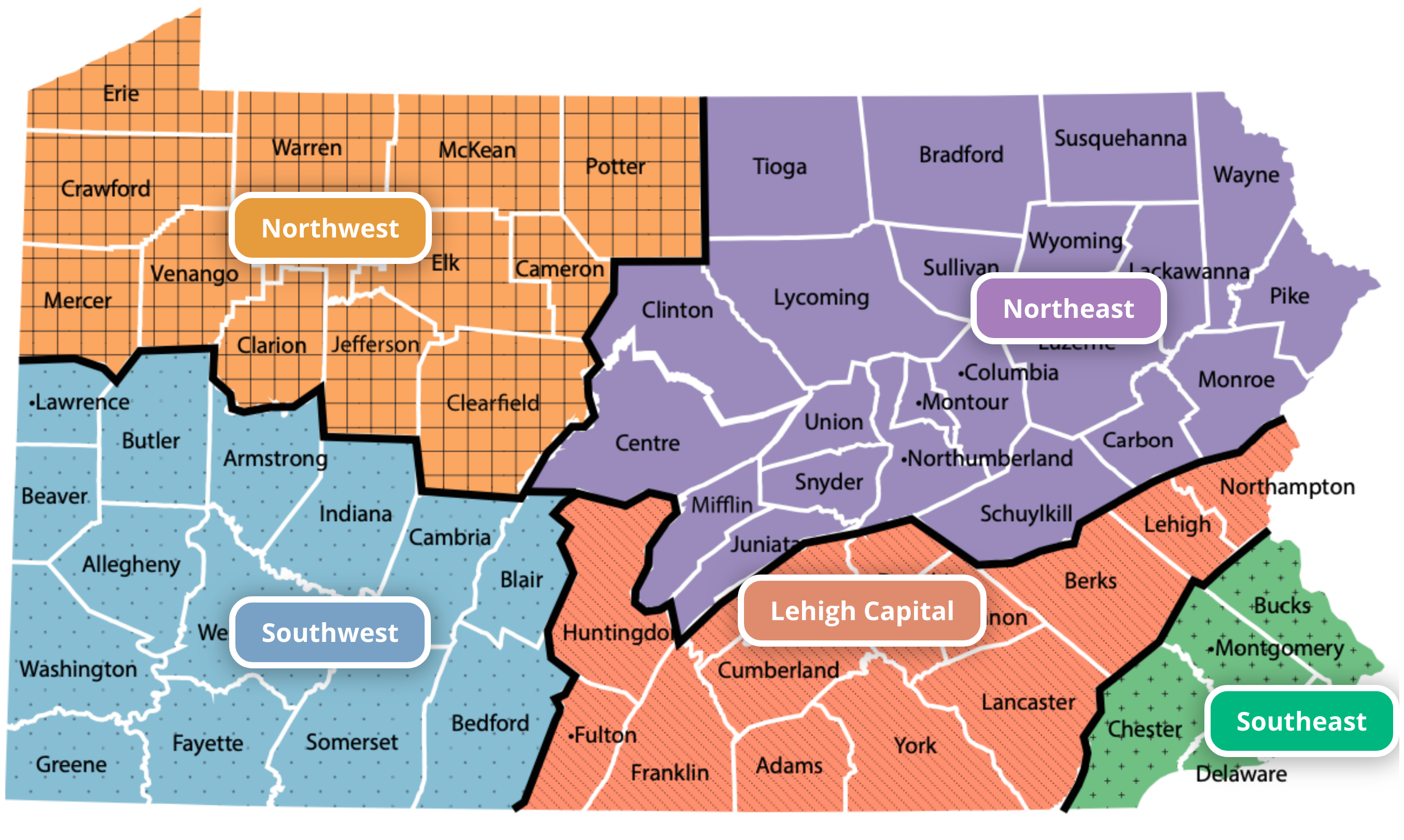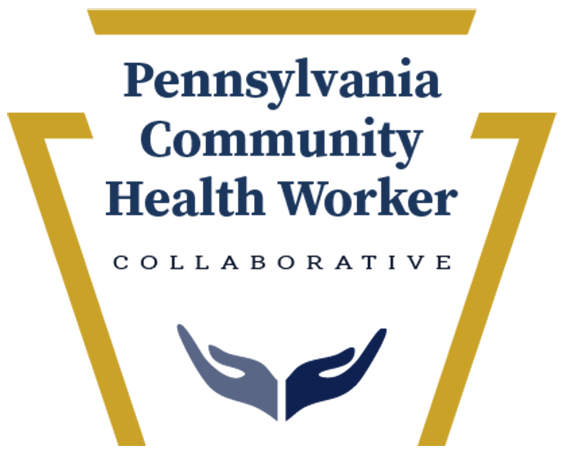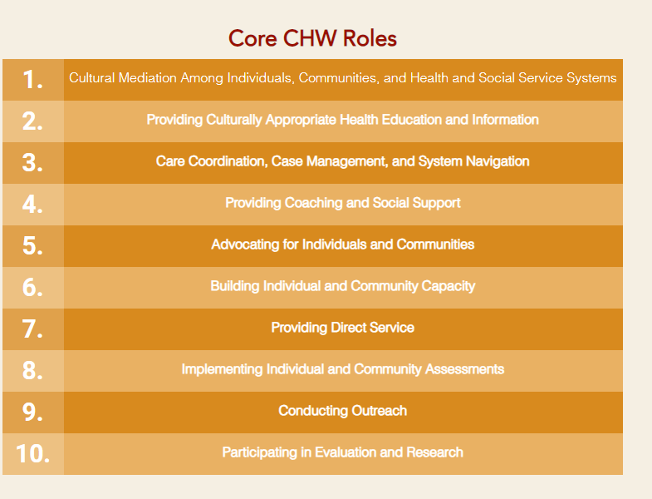Awareness
Who are CHWs?
A Community Health Worker (CHW) is a trusted member of their community who leverages lived experience to contribute to improved health outcomes. CHWs serve the communities in which they reside or communities with which they may share ethnicity, language, socioeconomic status, or life experiences.
PACHW prioritizes educating individuals about who CHWs are, what services CHWs provide, and the impact CHWs make in their communities. CHWs are educating Pennsylvanians every day about the role of the CHW and the services they can provide. Across all efforts, we strive to keep our messaging consistent and to distinguish the CHW role from other professions. In 2023, CHWs and allies met with over 150 cross-sector stakeholders across the Commonwealth to spread the word about CHW impact and the need to support and sustain. Twelve Pennsylvania CHWs presented at 6 local, statewide, and national conferences, and PACHW met with over 30 state legislators to spread awareness about CHWs.

A Community Health Worker proactively:
-
Builds individual and community capacity by increasing health knowledge and self-sufficiency through a range of activities such as outreach, community education, informal counseling, social support and advocacy
-
Serves as a liaison between communities and health care agencies
-
Provides culturally and linguistically appropriate health education
-
Provides guidance and social assistance to community residents
-
Enhances community residents’ ability to effectively communicate with healthcare provider
-
Advocates for individual and community health
-
Provides referral and follow-up services or otherwise coordinates care
-
Identifies and helps enroll eligible individuals in federal, state, and local private or nonprofit health and human services programs
APHA Definition
American Public Health Association
A community health worker is a frontline public health worker who is a trusted member of and/or has an unusually close understanding of the community served. This trusting relationship enables the worker to serve as a liaison/link/intermediary between health/social services and the community to facilitate access to services and improve the quality and cultural competence of service delivery.
A community health worker also builds individual and community capacity by increasing health knowledge and self-sufficiency through a range of activities such as outreach, community education, informal counseling, social support and advocacy.
Where are CHWs?

CHW Impact
Evidence of CHW Effectiveness
NACHW Document Resource Center
The nation’s largest searchable database of documents and publications related to CHWs and CHW policy.
https://nachw.org/documentresourcecenter/
CHWs: Evidence of their Effectiveness
A summary of research studies and publications demonstrating the effectiveness of CHWs.
Community Health Workers: Evidence of Their Effectiveness (astho.org)
$2.47 ROI for Medicaid
Every dollar spent on patients receiving support from Penn Medicine’s community health worker (CHW) program resulted in an annual return on investment (ROI) of $2.47 for every dollar invested annually by Medicaid
Penn’s Community Health Worker Program Yields $2.47 for Every $1 Invested Annually by Medicaid – Penn Medicine
CHWs: Their Important Role in Public Health
Engaging CHWs in PCOR to Address Health Disparities in the Context of COVID-19
This PCORI-funded implementation project expanded the use of a community health worker, or CHW, program shown to improve quality of care and reduce hospital days for patients facing socioeconomic disadvantage.
Expanding the Use of IMPaCT: A Community Health Worker Program | PCORI
U.S. Occupational Outlook for CHWs
%
Projected Job Growth through 2032
CHW Jobs in 2022
Projected Jobs Added by 2032
BLS Occupational Outlook for CHWs

